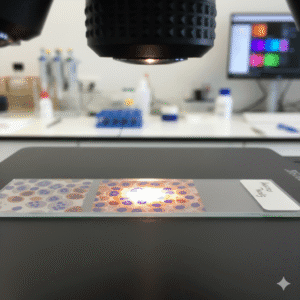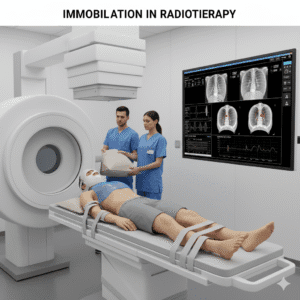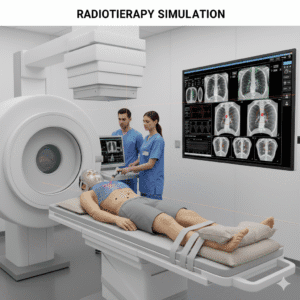
Cancer Info
Gastro-Esophageal cancers
What is the incidence of gastro-esophageal cancers in India?
Gastro-esophageal cancers, which include cancers of the esophagus and stomach, are increasingly common in India. The incidence of esophageal cancer is rising, particularly in certain regions, and it is among the top cancers affecting men. Stomach cancer also remains prevalent. Factors such as dietary habits, smoking, and the prevalence of infections like Helicobacter pylori contribute to these rising rates.
What are the main risk factors for gastro-esophageal cancers?
Several factors can increase the risk of developing gastro-esophageal cancers:
Tobacco Use: Smoking is a significant risk factor for both esophageal and stomach cancers.
Alcohol Consumption: Heavy drinking increases the risk, especially when combined with smoking.
Obesity: Excess body weight is linked to higher rates of gastro-esophageal cancers.
Diet: A diet low in fruits and vegetables and high in processed foods can increase risk.
Chronic Acid Reflux (GERD): Long-term GERD can damage the esophagus and increase cancer risk.
Infections: Chronic infection with Helicobacter pylori is linked to stomach cancer.
How is gastro-esophageal cancer investigated?
Currently, there are no routine screening tests for gastro-esophageal cancers for the general population. However, individuals at high risk, such as those with chronic GERD or a family history of the disease, may benefit from endoscopic screening. This involves using a thin, flexible tube with a camera to examine the esophagus and stomach.
What are the signs and symptoms of gastro-esophageal cancers?
Common symptoms include:
Difficulty Swallowing (Dysphagia): A sensation of food getting stuck in the throat or chest.
Unexplained Weight Loss: Losing weight without trying can be a warning sign.
Persistent Heartburn or Indigestion: Ongoing discomfort in the stomach or chest.
Nausea or Vomiting: Especially if it includes blood or a “coffee ground” appearance.
Fatigue: Constant tiredness or weakness can be associated with cancer.
Changes in Appetite: A sudden decrease in appetite or food aversion.
What is Barrett's esophagus?
Barrett’s esophagus is a condition where the cells lining the esophagus change due to long-term exposure to stomach acid from GERD. This condition is considered a precancerous change and increases the risk of esophageal adenocarcinoma. Regular monitoring through endoscopy is recommended for individuals diagnosed with Barrett’s esophagus.
What is GERD, and how does it relate to esophageal cancer?
Gastroesophageal reflux disease (GERD) is a condition where stomach acid frequently flows back into the esophagus, causing irritation and inflammation. Chronic GERD can lead to changes in the esophageal lining, known as Barrett’s esophagus, which increases the risk of developing esophageal cancer. Patients with GERD should manage their symptoms and discuss screening options with their doctors.
What investigations are done to diagnose gastro-esophageal cancer?
Diagnosis may involve several tests:
Endoscopy: A procedure where a thin tube with a camera is inserted down the throat to examine the esophagus and stomach.
Biopsy: During endoscopy, tissue samples can be taken for analysis to confirm cancer.
Imaging Tests: CT scans, PET scans, or MRI may be used to determine the extent of the cancer and check for spread.
Barium Swallow Test: An X-ray study that helps visualize abnormalities in the esophagus.
How is gastro-esophageal cancer managed based on its stage?
Management depends on the stage of cancer:
Stage 0 (Carcinoma in situ): Often treated with endoscopic resection.
Stage I: Typically managed with surgery (esophagectomy or gastrectomy) and may include radiation.
Stage II and III: Treatment may involve a combination of surgery, chemotherapy, and radiation.
Stage IV: Treatment is usually palliative, focusing on relieving symptoms and may include chemotherapy and targeted therapies.
What are molecular tests, and why are they important?
Molecular tests analyze the genetic makeup of cancer cells to identify specific mutations. These tests can help determine the most effective treatment options. For example, certain mutations may indicate sensitivity to targeted therapies or immunotherapy, allowing for a personalized treatment plan tailored to the patient’s cancer profile.
What is targeted therapy for gastro-esophageal cancer?
Targeted therapy involves using drugs that specifically target cancer cells based on their genetic features. For gastro-esophageal cancers, targeted therapies may focus on specific pathways or proteins that promote tumor growth. This approach aims to attack cancer cells while minimizing damage to normal cells, often leading to fewer side effects.
What role does chemotherapy play in treating gastro-esophageal cancer?
Chemotherapy uses powerful drugs to kill rapidly dividing cancer cells. It is often used for advanced stages of gastro-esophageal cancer or as an adjunct to surgery. Common regimens may include combinations of drugs such as cisplatin and fluorouracil. Side effects can include nausea, hair loss, fatigue, and an increased risk of infections.
How does immunotherapy work for gastro-esophageal cancer?
Immunotherapy helps the body’s immune system recognize and attack cancer cells. For certain types of gastro-esophageal cancers, treatments like immune checkpoint inhibitors can enhance the immune response against tumors. This approach can be particularly effective in advanced cases where other treatments may not have worked.
What is the role of radiotherapy in treating gastro-esophageal cancer?
Radiotherapy uses high-energy rays to kill cancer cells. It can be used:
Before Surgery: To shrink tumors and make them easier to remove.
After Surgery: To eliminate any remaining cancer cells.
For Palliative Care: To relieve symptoms in advanced cancer. Side effects may include fatigue and localized skin irritation.
What is CyberKnife radiosurgery, and what are its benefits?
CyberKnife is a form of non-invasive radiation therapy that delivers highly focused radiation to tumors. Benefits include:
Precision: Targets tumors with minimal damage to surrounding healthy tissue.
Non-Invasive: No surgical incisions are required.
Fewer Sessions: Typically requires fewer treatment sessions compared to traditional radiotherapy.
Minimal Side Effects: Generally fewer side effects, making it a suitable option for patients who may not tolerate conventional surgery or radiation well.
What should I expect during follow-up appointments?
Follow-up appointments are essential for monitoring your recovery and checking for any signs of recurrence. During these visits, your healthcare provider may perform physical examinations, review your symptoms, and order imaging tests or blood work as needed. Regular follow-ups help ensure timely detection of any issues and allow for prompt intervention if necessary.
How do genetics affect the risk of gastro-esophageal cancers?
Certain genetic conditions can increase the risk of developing gastro-esophageal cancers. For example, hereditary syndromes like Lynch syndrome are associated with a higher likelihood of esophageal and stomach cancers. Individuals with a family history of these cancers may benefit from genetic counseling to assess their risk and discuss preventive measures.
How can exercise & rehabilitation help in recovery from gastro-esophageal cancer?
Regular exercise is beneficial for overall health and recovery after cancer treatment. Physical activity can help maintain a healthy weight, improve mood, and enhance physical fitness. Activities like walking, swimming, or yoga can be good choices. It’s important to consult with your healthcare provider before starting any exercise program to ensure it is safe and appropriate for your situation.
Rehabilitation services can support your recovery after treatment. This may include:
Physical Therapy: To help regain strength and mobility, especially if surgery affected your physical function.
Nutritional Support: Working with a dietitian to ensure adequate nutrition during recovery.
Emotional Support: Counseling services can help address psychological challenges and improve mental health during recovery.
How can diet and nutrition support recovery from gastro-esophageal cancer?
A balanced diet is essential for recovery. Focus on consuming a variety of fruits, vegetables, whole grains, and lean proteins. Proper nutrition can help maintain strength, support healing, and improve overall well-being. Consulting with a registered dietitian can provide personalized dietary advice tailored to your needs, especially if you experience difficulty swallowing or changes in appetite due to treatment.




